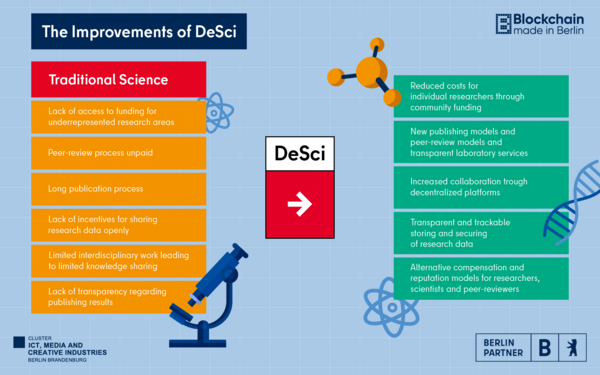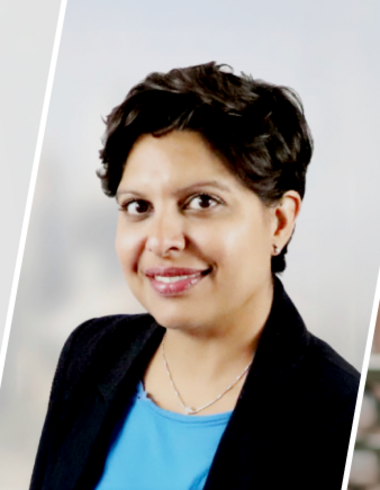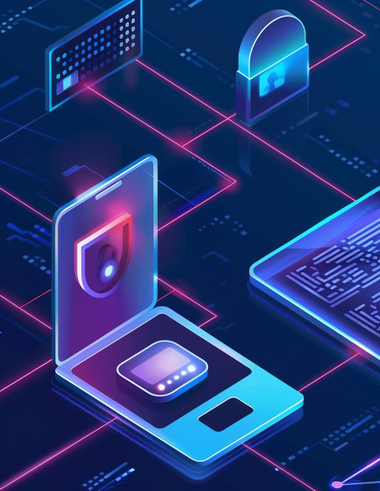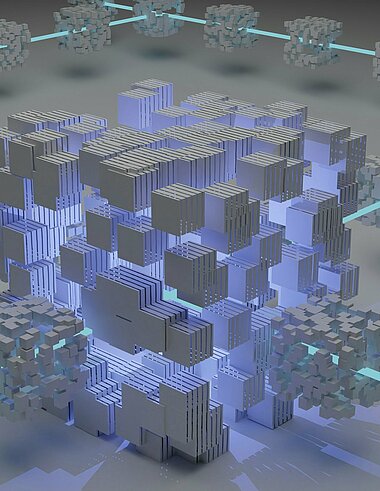Unrestricted and free access to scientific information, free teaching and educational materials, transparently viewable research data, open peer review processes: these are the principles of Open Science. At the same time, they are a promise of new knowledge for society and the economy. Open Science was first made possible by the Web 2.0 culture, in which users:inside could create and share content themselves. With the development of Web3, even greater promises are hoped for: the Internet will become more democratic and decentralized. Instead of serving the "data silos" of large corporations and platforms, users will be able to control their own data and store it in a decentralized manner using blockchain technology. This will not only change the way we deal with the web, but will probably influence entire sectors of the economy. How? This is already evident in the financial sector, where cryptocurrencies such as Bitcoin and Ethereum have given rise to their own transaction systems. In addition to the financial sector, the gaming industry or large brands and companies, the Web3 is also arousing more and more interest in the field of science and research.
A digital revolution for research
Open Science continues to evolve into DeSci (Decentralized Science). Here, too, the idea is: Scientists should be able to share their research results openly and transparently - without fear of censorship, falsification or loss of copyright. To make this possible, blockchain technology is used to store research data in a tamper-proof and decentralized manner and to clearly trace the authorship.
Bence Lukács, who works for the Institute for Applied Blockchain (IABC) in Berlin and is co-leader of the AG Wissenschaft im Blockchain Bundesverband e.V. ("Bundesblock"), explains how DeSci already works and why it can revolutionize science. He is also involved with the selfdriven Foundation, which researches and builds frameworks for self-driven learning for children and youth. At eLearningDAO, he is co-developing a decentralized learning platform and decentralizing the process of creating educational materials.
"In Open Science, you expose data, DeSci builds on that data being stored, available and traceable forever. This opens up access to new knowledge and collaboration opportunities. Right now, the natural sciences have a strong presence here because they do a lot of work with research results and data. But we're also committed to getting other disciplines, such as social sciences, more in touch with DeSci."
Lukács emphasizes interdisciplinarity. With the research of IABC and the work in the AG Wissenschaft im Bundesblock he focuses on the related sociological questions and the possibilities of a decentralized society. For example, an important question here is: How will collaboration change in the future?
"Sure, you can't lose sight of the scientific and technical perspective, but we don't want to make the same mistakes we made when we developed the Internet twenty years ago. Where there was no question about identities, security was not an issue at all, and no consideration was given to the fact that people communicate and collaborate differently here."
Creating decentralized autonomy with identity
With all this technology, people should not be left out of the picture. Lukács talks about digital empowerment in dealing with blockchain technology: DeSci is about empowering people. Software is here the means to an end.
This could create a decentralized distributed research system in which scientific questions are worked on together, funding is collected on the web3 and publications are no longer dependent on the reputation of high-paying publishers. A tokenized web ecosystem will be created that encourages scientists to openly share their research results and receive recognition for their work. Professionals who want to contribute from the outside will find it easier to participate. Those planning a research project can disclose previous data and questions and invite collaboration. Funding can also be obtained outside established structures.
Coordination can be implemented via decentralized networks consisting of individuals or organized within DAOs (Decentralized Autonomous Organizations). However, DeSci does not only operate outside the classical structures of the scientific community. There are also DAOs and research projects that come directly from the research community. One of the best-known is Bloxberg, in which renowned institutes such as the Max-Planck-Institute in Munich, the Ludwig-Maximilian-University Munich (LMU) and the ETH Zurich participate. With Bloxberg, a dedicated blockchain infrastructure has been set up that allows scientific results and data to be managed decentrally, peer reviews to be organized and intellectual property to be protected.
Ideally, DAOs funds projects that are socially relevant but may not have been able to generate attention and research funding before. Lukács cites HairDAO as an example - a research collective against hair loss, funded and organized on a community basis. It brings together scientists, engineers and content creators who are committed to finding a solution to hair loss. Through HairDAO, they generate funds, share results and promote their project. If you look into DeSci, you will find a few such niche topics, so-called primary DAOs, such as the Longevity DAO, which deals with life-extending science, or the Red DAO, which wants to expand structures around a digital fashion ecosystem. In contrast to traditional research funding (for example, via governmental research funds, foundations or companies), funding is generated within a DAO itself. This makes funding not only more decentralized, but also more transparent "We know how a project is funded, by whom and why," says Lukács. Instead of applying for grants from public funds, research institutions or companies, the community funds the research, similar to crowdfunding. Bureaucratic hurdles are eliminated, as are strict regulations on research procedures. The community also has access to the research results, for example any patents on a developed drug, by owning the corresponding DAO tokens.
One of the largest, established DAOs in the world is VitaDAO. It supports and funds research focused on age-related diseases and extended lifespan. It now involves 10,000 researchers, patients, funders and interested parties. More than 19 projects and $4 million in funding have been implemented through VitaDAO. Representatives were also guests at DeSci.Berlin. The conference, which addresses and gathers the blockchain community in the science sector, took place in Berlin for the second time in early September as part of the Berlin Blockchain Week 2023.

Empowerment for future research
What role will DeSci take over considering the existing science or research funding system? How can the approaches complement each other? These questions were also highlighted at DeSci.Berlin.
Berlin-based system administrator Vincent Weißer is part of Molecule. The decentralized biotech protocol is building a Web3 marketplace for research-related intellectual property. The platform and the scalable framework for biotech DAOs connect experts and biotech companies. In his talk he shows how stress intensive, insufficiently remunerated, and not necessarily with the claim to authorship, the work of young scientists often is. Less than two percent of NIH-funding (NIH = National Institute of Health) goes to people under 35. The U.S. government agency for biomedical and public health research is considered the largest funding source in the world. Access to scientific literature and thus to current research results is hampered by paywalls. Problems in funding, competition and communication arise from this centralization and can be solved by decentralization, Weißer stated at the DeSci.Berlin. DeSci is a playground where new approaches can be tried out without already providing a perfect solution or structures. At the moment, the world of science consists of "physical first and physical native," but soon it will be "internet first and internet native. But the transition from the old to the new world of science will not be smooth for everyone.
Laura Miniquini, founder of AthenaDAO, which is dedicated to women's health, makes it clear during her presentation: While women obviously make up half of the world's population, women's health research is massively underfunded. Not only is this a neglected area of the economy and the economic sector, she said, but it leaves a great deal of potential untapped. This is another area where the DAO ecosystem is having an impact. Those who are active in research fields such as menopause or endometriosis do not have to be scientists or investors but can contribute motivation or other competencies. The chance that also young researchers will be supported in their projects is much higher.
Empower instead of being powerless! Bence Lukács also sees this as one of the greatest achievements of the DeSci structures. A virtual space opens up for science, in which scientific knowledge becomes a public good (also called commons) and can be financed and organized from within society. Intellectual property is preserved and scientific knowledge is nevertheless opened up for collaborative work. Could DeSci provide a global alternative to the current scientific system that is fairer and more equitable? Only time will tell.
Sources
- Blockchain Bundesverband e.V. (2023): Dezentrale und offene Wissenschaft. Arbeitsdefinition OpenScience & #DeSci. Online-Article
- DeSci.Berlin (2023): DeSci.Berlin 2023 I Live Stream (Friday, 8th September), YouTube
- Mittweida University of Applied Science (2023): Konferenzband zum Scientific Track der Blockchain Autumn School 2023, Scientific Reports 2023, Nr. 2, Online-Publication.
- Rawat, Sachin (2022): Blockchain experts are funding research that Big Pharma won't. Online-Article
- Weidener, Lukas (2023): Nach DeFi kommt DeSci. So revolutioniert Blockchain-Technologie die Wissenschaft. BTC Echo




